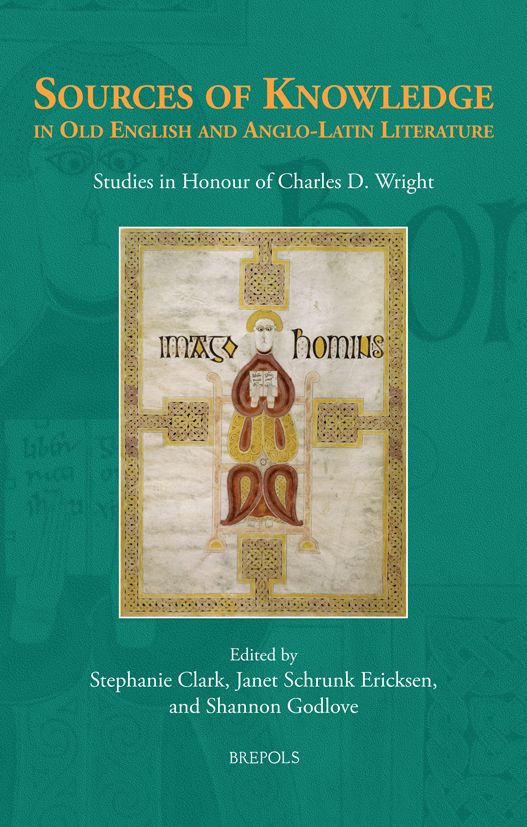
Stephanie Clark, Janet Schrunk Ericksen, Shannon Godlove (dir.), Sources of Knowledge in Old English and Anglo-Latin Literature. Studies in Honour of Charles D. Wright
This volume positions source scholarship as integral to an understanding of the transmission of knowledge across intellectual, social, and material networks in early medieval England. Essays in this collection situate source studies in Old English and Anglo-Latin literature within a range of theoretical and methodological approaches as varied as disability studies, feminist theory, history of science, and network analysis, tracing how ideas move across cultures and showing how studying sources enables us to represent the diversity of medieval voices embedded in any given text.
The essays in this volume extend the work of Charles D. Wright, who mentored a generation of scholars in methodologies of source study. The essays are organized into three sections. The first demonstrates how source studies facilitate tracing ideas across space and time. The second explores what happens to texts and ideas when they are transmitted from one culture, language, or historical moment to another. The third shows how sources illuminate wider cultural discourses. The volume attests to the flexibility of source work for early medieval English literature and argues for increased access to the tools that make such work possible.
Table of Contents
Sources of Knowledge: A Reflection on Charles D. Wright’s Career
THOMAS N. HALL
Introduction
STEPHANIE CLARK, JANET SCHRUNK ERICKSEN, and SHANNON GODLOVE
I. Networks of Knowledge
Ælfric’s Traditions about the Apostles and Media Networks
BRANDON HAWK
Reading Lyric I of the Old English Advent Lyrics as Form-of-Life
JOHANNA KRAMER
Bede’s Books Don’t Tell Lies: Named Sources, Unideal Readers, and Bede's Welsh Reception
JOSHUA BYRON SMITH
Ælfric’s Leitwortstil: Repetition and Autoreferentiality as Adaptive Techniques in the Old English Esther
SAMANTHA ZACHER
Source Study and the Inconclusive Result: The Case of Candidus Witto’s De passione Domini
CHRISTOPHER A. JONES
II. Translation and Transformation of Knowledge
Christ as Doorkeeper in Genesis A
THOMAS N. HALL
Spiritual Virtues, Unseen Spaces, and the Optics of Authority in Early Medieval English Accounts of Judith
JILL FITZGERALD
Bede, Cuthbert, and Cuthwine: Conlectores at Monkwearmouth-Jarrow
FREDERICK M. BIGGS
A Source for a ‘Homily’ in Byrhtferth’s Enchiridion
STEPHEN PELLE
The Digressions in Andreas
THOMAS D. HILL
From Eriugena to Dostoyevsky: Christian Universalism in Hiberno-Latin Contexts and its Continued Significance
PAUL A.K. SIEWERS
III. Bodies of Knowledge
Translatio medicinae: Mediterranean Sources in an English Climate
RENEÉ R. TRILLING
Medievalism, Medicine, and William Somner’s Dictionarium Saxonico-Latino-Anglicum
REBECCA BRACKMANN
Modblind and Unlæd: Disability, Intersectionality, and Typology in the Old English Andreas
AMITY READING
Swallowed and Forgotten: Christ III and the Mouth of Hell in Early Medieval England
JILL HAMILTON CLEMENTS
Index